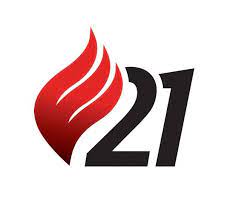Event Type
Papers Read
Start Date
13-10-2021 8:30 AM
End Date
13-10-2021 9:00 AM
Description
During the early days of lockdown in the COVID-19 pandemic in 2020, there was a misnomer that the pandemic was the great equalizer, a non-respecter of wealth, ethnicity, status, or power. However, it soon became obvious that the pandemic only exacerbated socioeconomic inequalities and even further inflamed racial and ethnic disparities. In Central and Eastern Europe, this can clearly be seen in two marginalized groups of people: the thousands of scattered Roma communities and in the long-standing plight of the middle-eastern and north African asylum seekers trapped in Bosnia-Herzegovina.
As justice is connected to power, marginalized communities have little access to the kinds of power that would ensure their rights and equitable treatment in a time of crisis. However, a Christian witness of biblical justice reveals the compassion of God, manifested through both intentional action but also demonstrated through God’s ongoing redemptive work within these communities. This paper will first examine the concept of Christian justice before highlighting the situation of asylum seekers and Roma communities during the pandemic. Finally, it will focus on the ways in which Christian response has exemplified justice and the obstacles preventing a more robust engagement.
Christian Justice in a Global Pandemic: The Church’s call to merciful advocacy for Roma communities and asylum seekers in Southeastern Europe
During the early days of lockdown in the COVID-19 pandemic in 2020, there was a misnomer that the pandemic was the great equalizer, a non-respecter of wealth, ethnicity, status, or power. However, it soon became obvious that the pandemic only exacerbated socioeconomic inequalities and even further inflamed racial and ethnic disparities. In Central and Eastern Europe, this can clearly be seen in two marginalized groups of people: the thousands of scattered Roma communities and in the long-standing plight of the middle-eastern and north African asylum seekers trapped in Bosnia-Herzegovina.
As justice is connected to power, marginalized communities have little access to the kinds of power that would ensure their rights and equitable treatment in a time of crisis. However, a Christian witness of biblical justice reveals the compassion of God, manifested through both intentional action but also demonstrated through God’s ongoing redemptive work within these communities. This paper will first examine the concept of Christian justice before highlighting the situation of asylum seekers and Roma communities during the pandemic. Finally, it will focus on the ways in which Christian response has exemplified justice and the obstacles preventing a more robust engagement.





